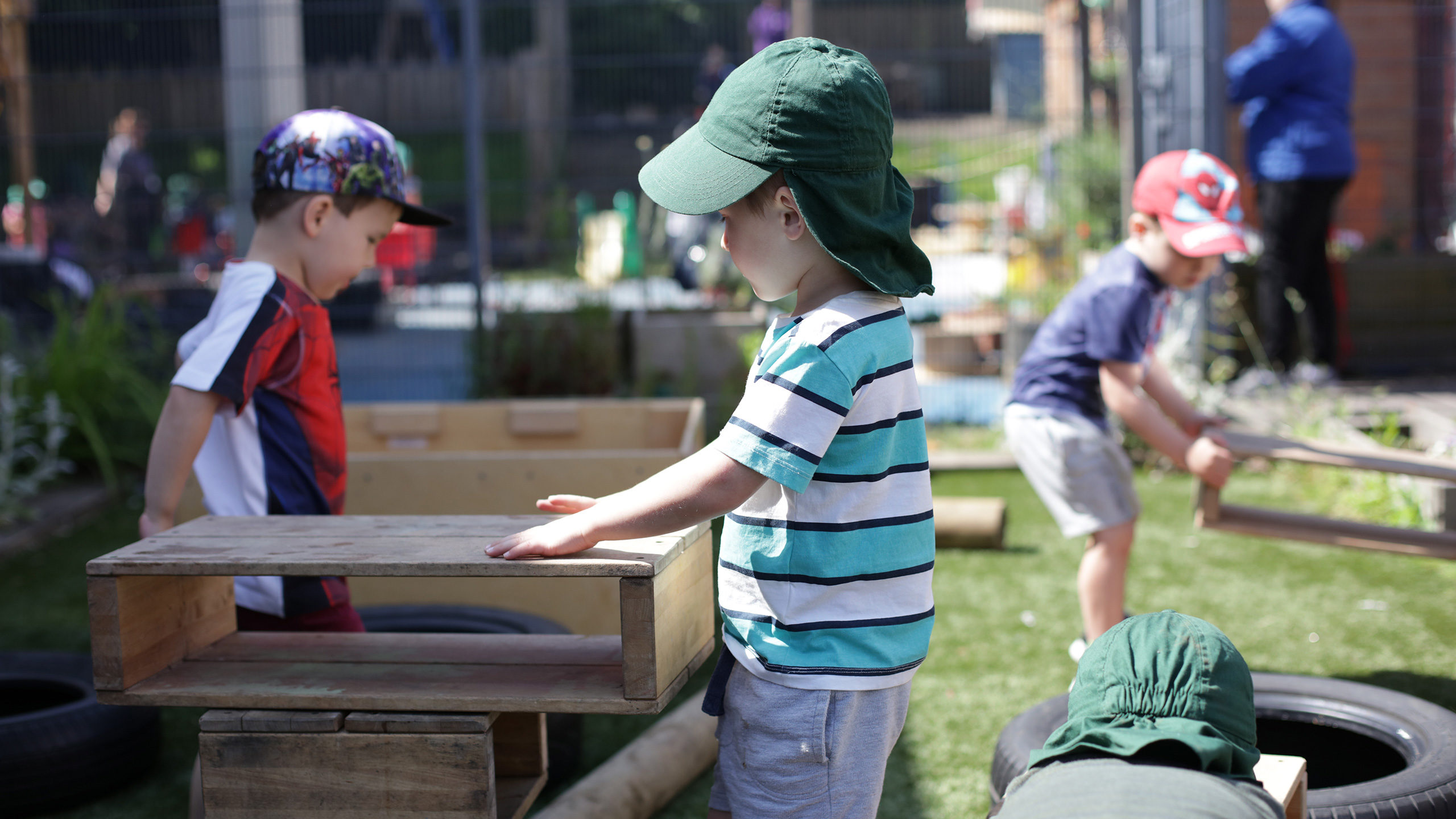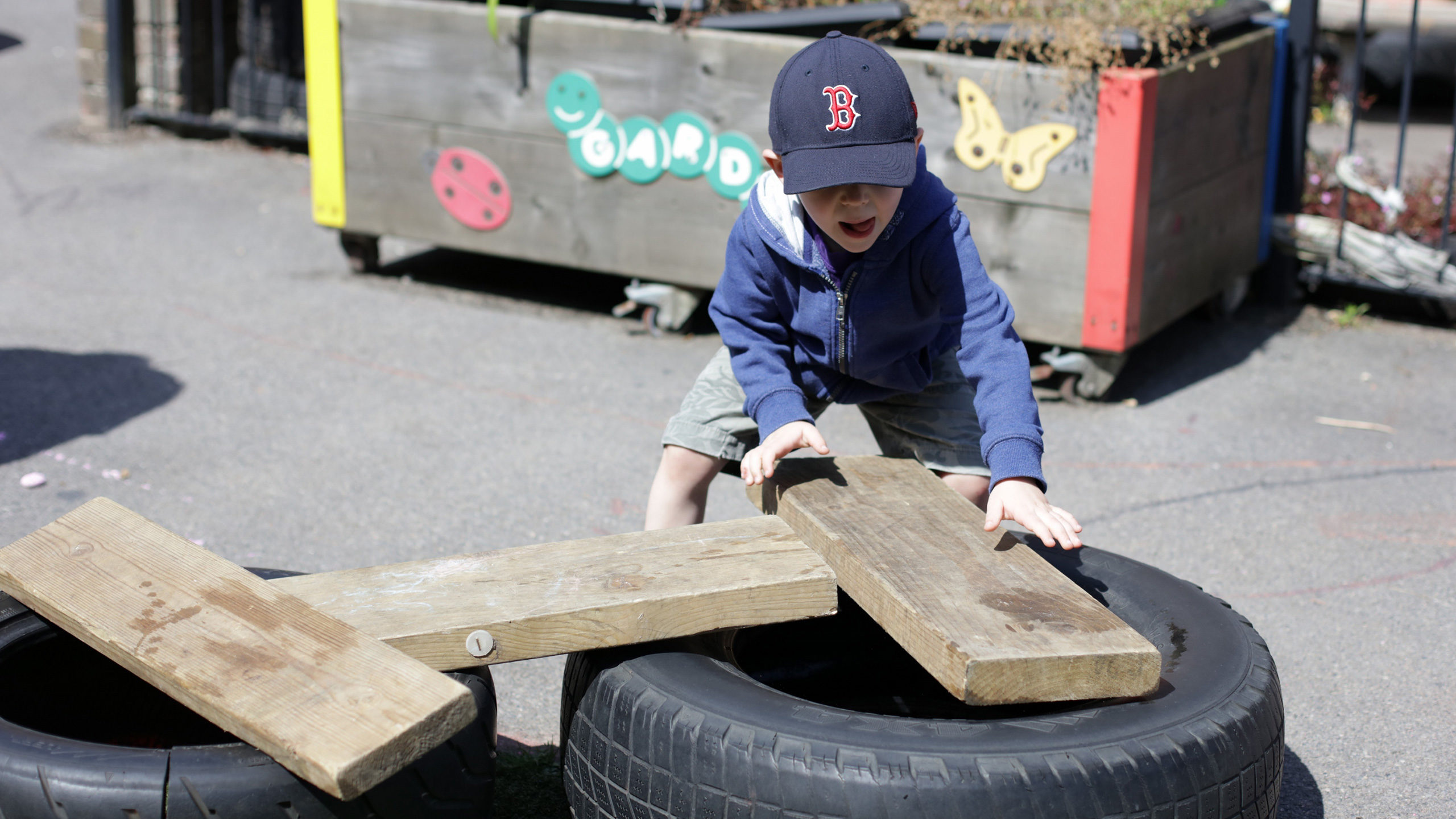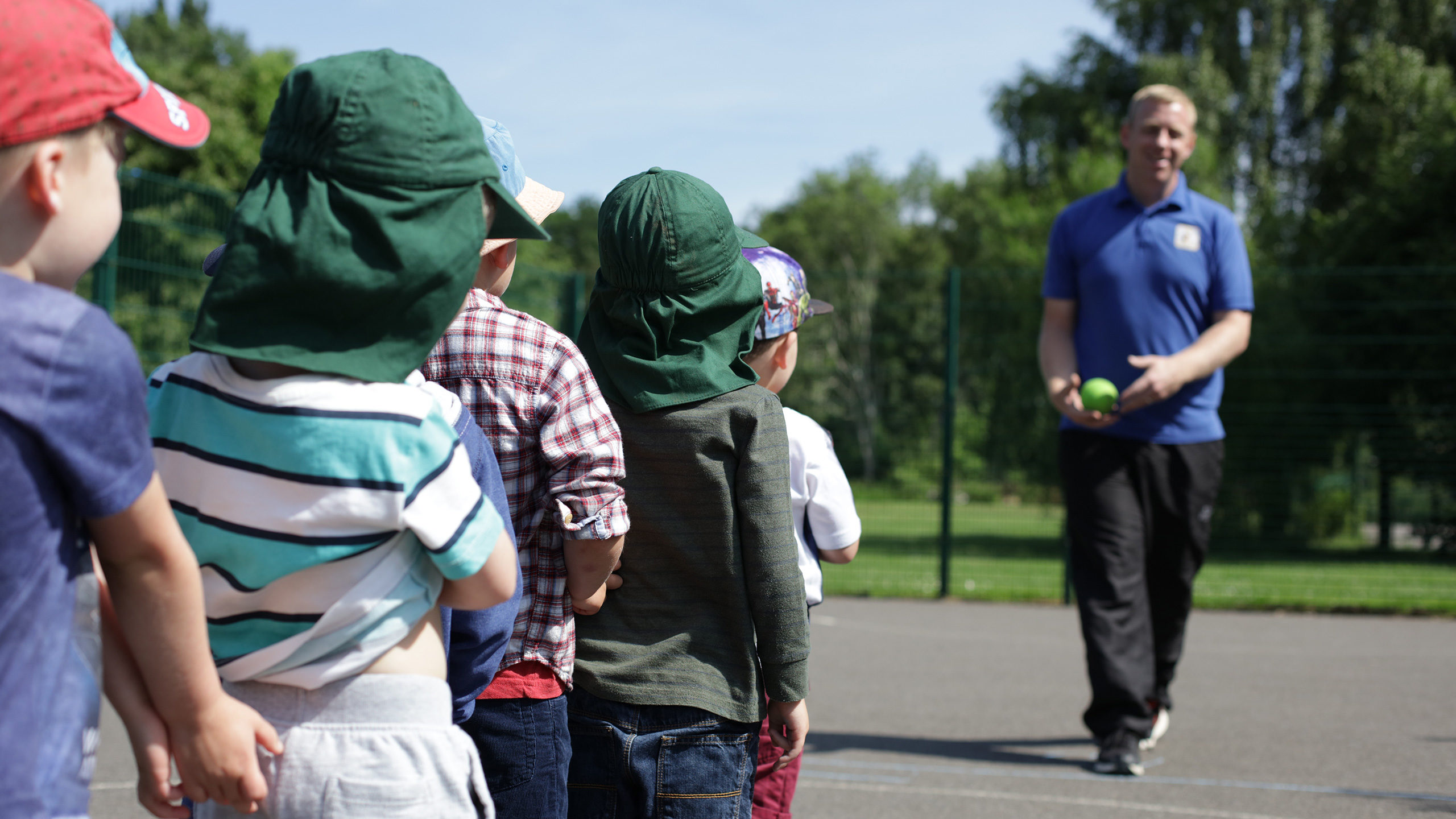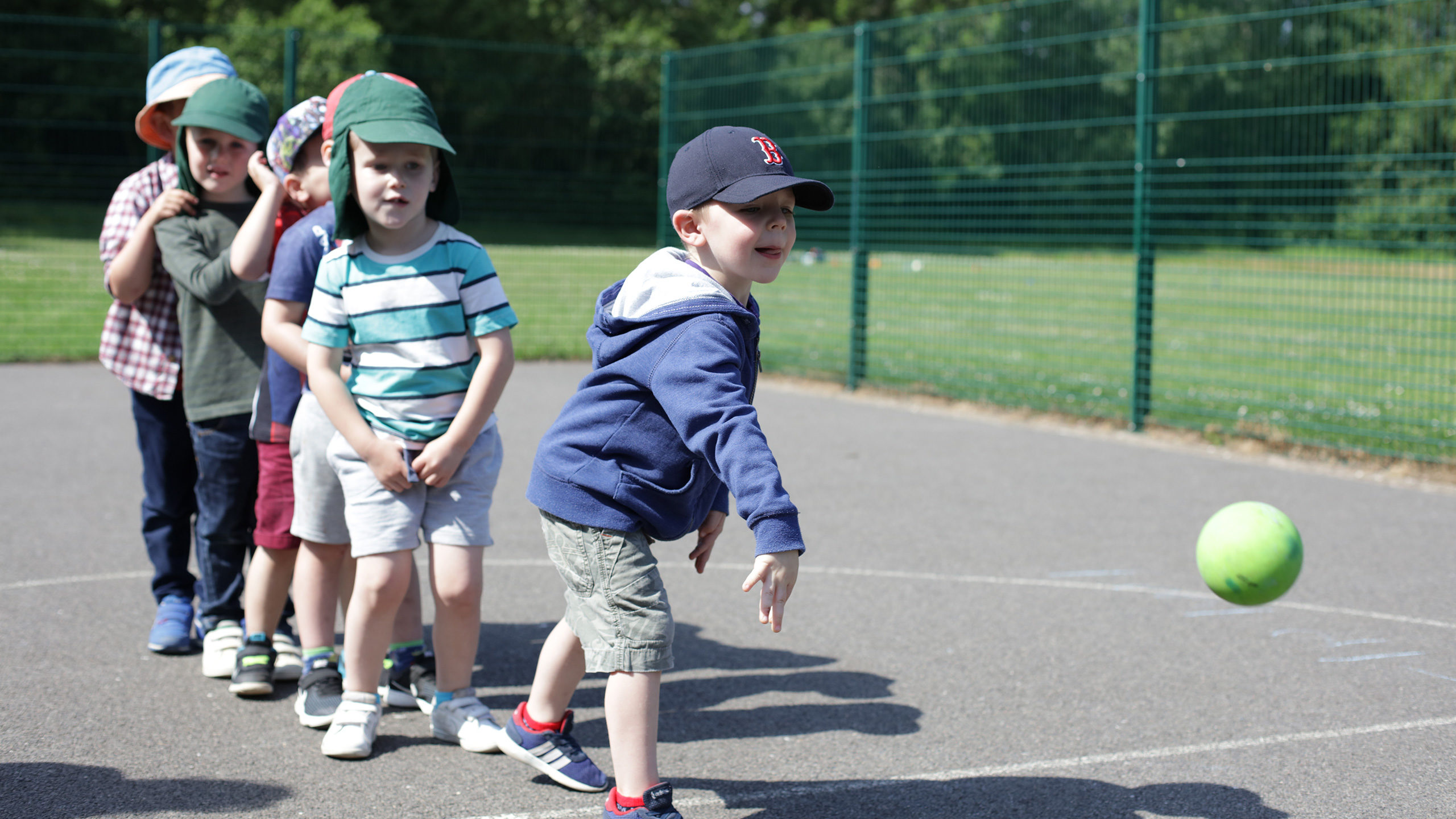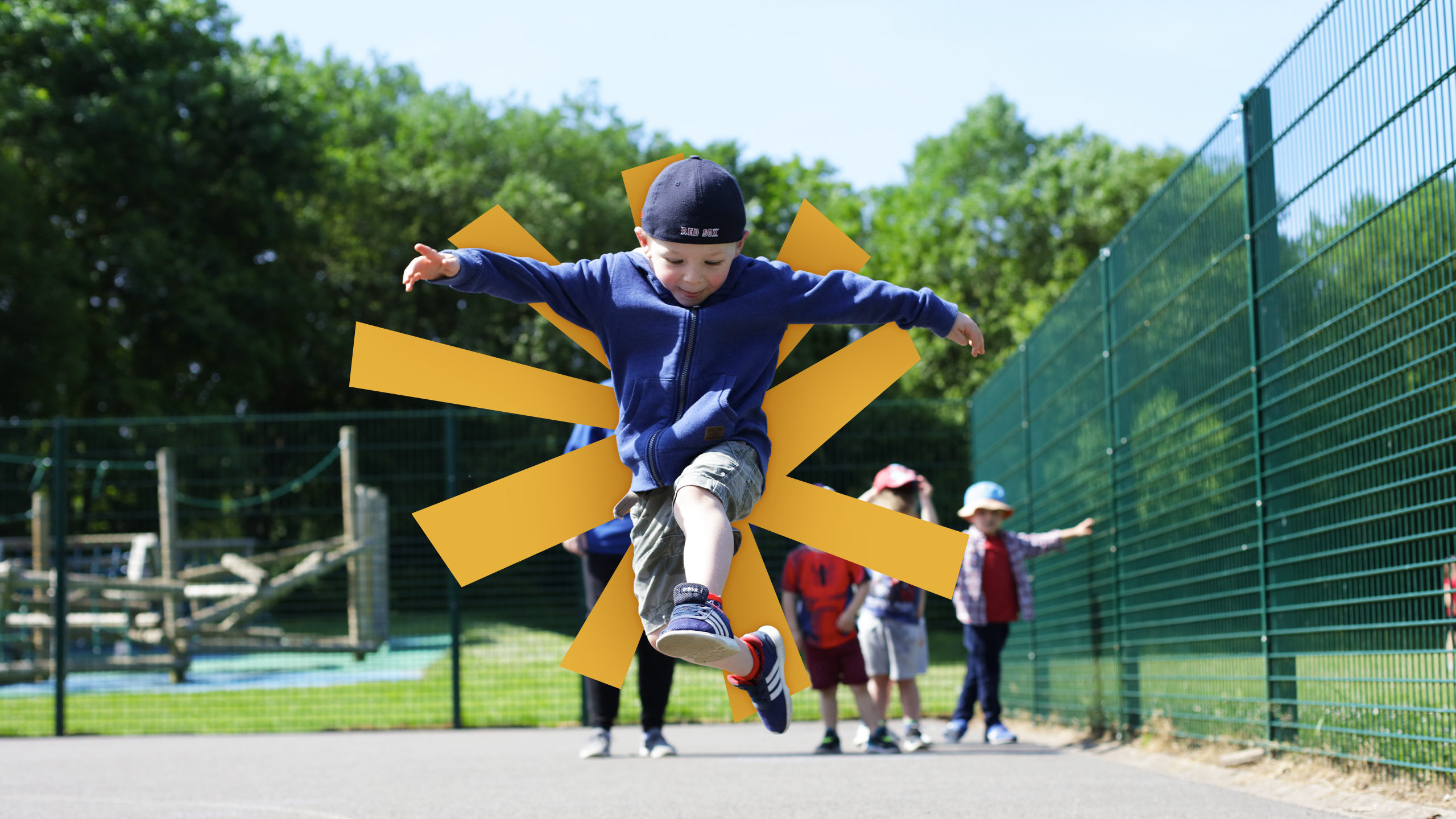Hi, I’m Chris Warren, lead educator for physical development at Growing Places.
My belief is that a number of children, particularly boys, respond best to learning through physical play, so my role is to ensure all our settings offer increasing opportunities for these to happen.

Physical means any activity that a child takes part in that involves movement to either support health or strengthen bones and muscles. Physical relates to gross motor skills (Skills involving large muscle movements such as crawling, throwing, running) and fine motor skills (skills involving smaller muscle movements e.g. grasping, drawing) and can be active, like running and jumping, in order to get the heart rate up or concentrating on muscle development, like crawling and stretching.
We believe that opportunities for enhancing physical skills are vital to a child’s development and allow them to improve their levels of fitness, health & well-being and movement capabilities alongside strengthening children’s muscles/bones.
Through the development of physical skills and enjoyment in play, children’s individual confidence develops, and they become able to persist with activities for longer periods of time. As time goes on, attitudes to learning change and impact on other areas of their development, including communication skills.
Physical opportunities are becoming increasingly limited. I believe there are a number of factors in this, including modern technology (consoles, tablets, phones, etc.) and the impact this has on both adults and children’s motivation to keep active.
According to a report from the British Heart Foundation on Physical Inactivity in 2017, around 39% of UK adults are not meeting recommended guidelines for physical activity. According to another article from the NHS:
“18% of children and young people are meeting the current Chief Medical Officer guidelines of taking part in sport and physical activity for at least 60 minutes every day. A further 26% sit just below this threshold, taking part on average for 60+ minutes a day across the week, whilst 33% do less than an average of 30 minutes a day.”
Children should be physically active for at least 180 minutes (3 hours) per day, with at least 30-60 minutes of this being moderate to vigorous activities, such as sports and playground games.
I have particular empathy for the fact that some children can appear to be labelled for bad behaviour, when perhaps they just struggle with aspects such as focusing and attention. This stems from some of my own experiences in school and has made me passionate about providing learning experiences that meet the needs of the child in facilitating development opportunities.

